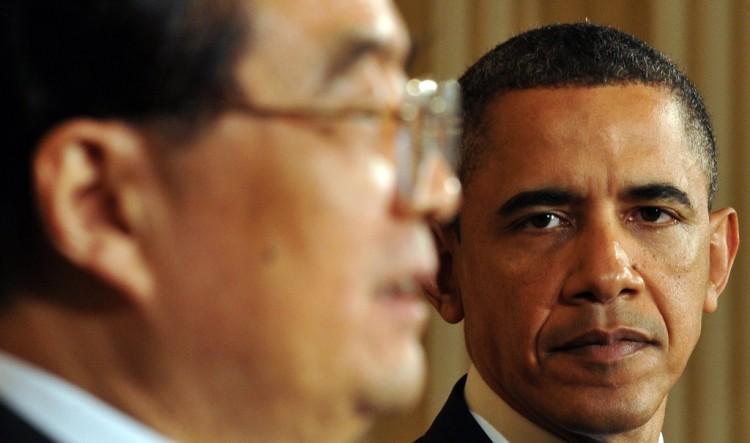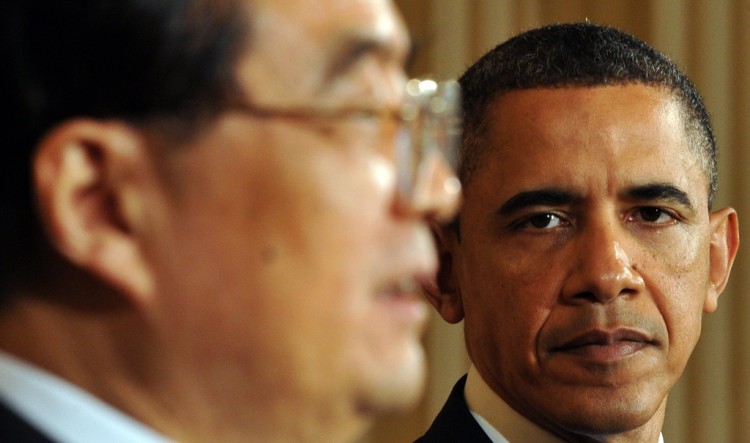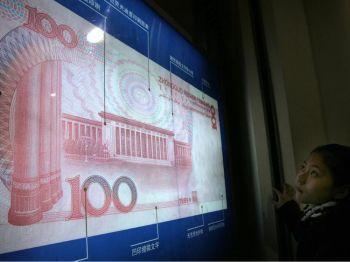Ever since China opened to the West for economic development some 30 years ago, Communist Party leaders have been concerned that western ideology and values would transform Chinese society and the regime’s one-party political system. But a speech by Party head Hu Jintao reveals a new level of anxiety within the Chinese Communist Party (CCP) about the threat from western ideology and culture infiltrating China.
Qiushi magazine, the CCP’s core publication and the journal of the Central Committee, recently published a speech given by Chinese leader Hu Jintao during the 6th session of the 17th National Congress of the communist party last October.
The National Congress usually doesn’t discuss cultural policy, but did broach the subject in this session. Two months later, Qiushi magazine published an abridged version of Hu’s 5,000-word speech, in which he sounds the alarm about a Western cultural invasion.
“Hostile forces are intensifying strategic attempts to westernize and divide China,” Hu said. “Ideology and cultural fields are the focal areas of the hostile forces’ long term infiltration effort.”
‘Hostile Forces’
Some analysts pointed out the irony of Hu’s statement—communism is itself an import from the West.
Zhao Pei, a commentator at New Tang Dynasty, an independent Chinese-language television network with headquarters in New York, said communist ideology, a foreign import, infiltrated China 90 years ago,and has been “communizing” mainland China for the past 62 years.
The interesting part of Hu’s speech is his mention of “hostile forces,” Zhao said.
“These words expose the hostile attitude of the communist regime towards the free world. The CCP has talked about openness and reforms and wanting to connect with the international community, but this is all deceptive talk,” Zhao said. “The ultimate thought of this dictatorship is to maintain its authoritarian rule.”
Zhao also mentioned the commotion created in Chinese society by U.S. Ambassador Gary Locke’s plain and simple traveling and living style, which was criticized by some state media as an attempt to divide China.
“For the Chinese people, Gary Locke’s western style has been a long-awaited dream,” Zhao said. “Chinese netizens argued that if Gary Locke was to go out with a police escort, drink Maotais [an expensive Chinese liquor], play with mistresses, and engage in corruption, he'd be promoting the CCP’s values.”
Maintaining Stability
Chinese netizens have become more outspoken and critical of the regime since last year’s revolutions in the Middle East and North Africa. With a withering economy, mass protests have also increased.
The regime has been clamping down harder, arresting many rights activists and lawyers and controlling Internet content ever more closely during 2011. It’s security budget, used to control Chinese citizens, is said to be higher than it’s military budget.
After Hu’s speech, many big cities in China have been enforcing a real-name registration system for users of the popular Weibo micro blog.
Lin Heli, a current affairs commentator, told Radio France Internationale that the CCP has tightened the cultural and Internet policy after the 6th session of the 17th National Congress, and cyber-dissidents have also suffered a new round of suppression.
In the long run, controlling the micro blogs and Internet media is a difficult proposition. But in order to achieve its goal of “maintaining stability,” the CCP promises to increase funding and manpower.






